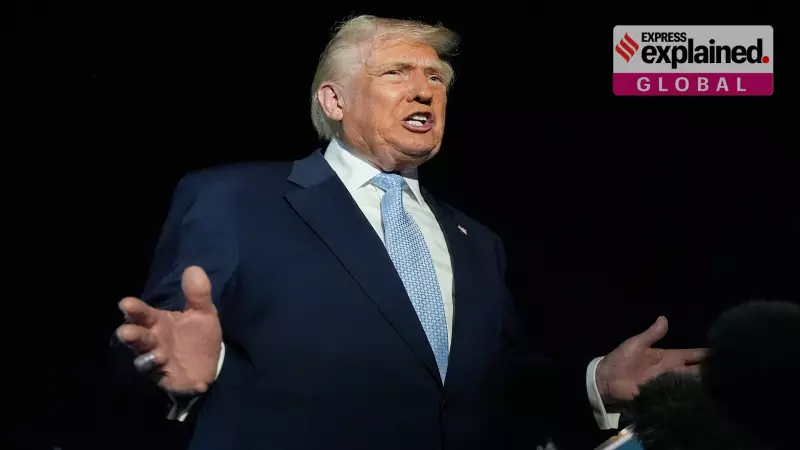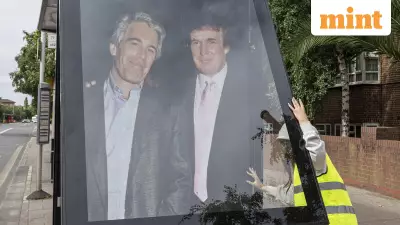
The conservative-majority US Supreme Court is now at the center of a monumental legal battle that will decide the fate of former President Donald Trump's sweeping global tariffs, a policy with direct consequences for Indian exports. The court's decision, stemming from arguments heard on November 5, 2025, is poised to redefine the limits of US presidential authority and test the judiciary's consistency on a powerful legal principle.
The Tariffs and The Legal Challenge
Soon after his return to the White House, President Trump began imposing tariffs on goods from nearly every nation, including India. He invoked a 1977 law known as the International Emergency Economic Powers Act (IEEPA), which permits a president to regulate international commerce during a declared national emergency.
Trump declared two such emergencies: one addressing the trafficking of fentanyl and other drugs into the United States, and another concerning the country's persistent trade deficits. Using this authority, his administration rolled out tariffs ranging from 10 percent on most goods to 50 percent on certain Indian exports, with some Chinese products facing levies well over 100 percent.
However, a coalition of small businesses and a dozen US states challenged this move. The challengers argue that the IEEPA never explicitly mentions the words "tariffs," "duties," or "taxes." They contend that the President has overstepped, using a law designed for specific emergencies to unilaterally overhaul the nation's entire trade policy—a power that, under the US Constitution, belongs solely to Congress. Three lower courts have already ruled against Trump, finding his use of the IEEPA illegal, prompting his administration to appeal to the highest court.
The Central Legal Principle: Major Questions Doctrine
At the heart of this case lies the "major questions doctrine." This is a rule of interpretation that the Supreme Court formally named and applied in its 2022 decision in West Virginia v. Environmental Protection Agency. The doctrine states that if an executive agency wishes to decide on an issue of "vast economic and political significance"—a "major question"—it must have clear, direct, and explicit authorization from the US Congress.
In simple terms, the executive branch cannot rely on vague or old language in a statute to justify a massive new policy. This is particularly significant given the court's current 6-3 conservative majority, which has used this very doctrine in recent years to strike down major policies from the previous Biden administration, including a COVID-19 vaccine mandate and a $430 billion student loan forgiveness program.
The challengers in the tariffs case insist the same logic must apply. They point out that the economic impact of Trump's tariffs is estimated to be in the trillions of dollars, far exceeding the student loan program the court previously found staggering. Since the IEEPA does not explicitly grant tariff-imposing power, they argue the President's actions are illegal under this doctrine.
A Skeptical Court and What's at Stake
During nearly three hours of arguments on November 5, several Supreme Court justices, including key conservatives, appeared deeply skeptical of the Trump administration's position.
The government's counsel, Solicitor General Dean John Sauer, argued that the power to "regulate importation" under IEEPA was broad enough to include tariffs and that the major questions doctrine should not apply in matters of foreign policy and national security.
This reasoning faced strong pushback. Chief Justice John Roberts noted that tariffs are a form of tax, and taxation has "always been the core power of Congress," calling the administration's justification a "misfit." Justice Neil Gorsuch, a Trump appointee, expressed concern that upholding the tariffs would create a "one-way ratchet" toward increasing executive power. Justice Amy Coney Barrett, another Trump appointee, asked the government to point to any historical instance where "regulate importation" was used to grant tariff authority. The court's liberal justices also voiced deep skepticism, with Justice Ketanji Brown Jackson noting that IEEPA was originally intended to constrain, not expand, presidential emergency powers.
The court's final decision will have profound implications. If it strikes down the tariffs, it would deal a major blow to Trump's economic agenda and could trigger a constitutional confrontation. However, if it upholds the tariffs by sidestepping the major questions doctrine, the court would face intense criticism for political hypocrisy and selective application of its own legal principles, undermining its credibility.





